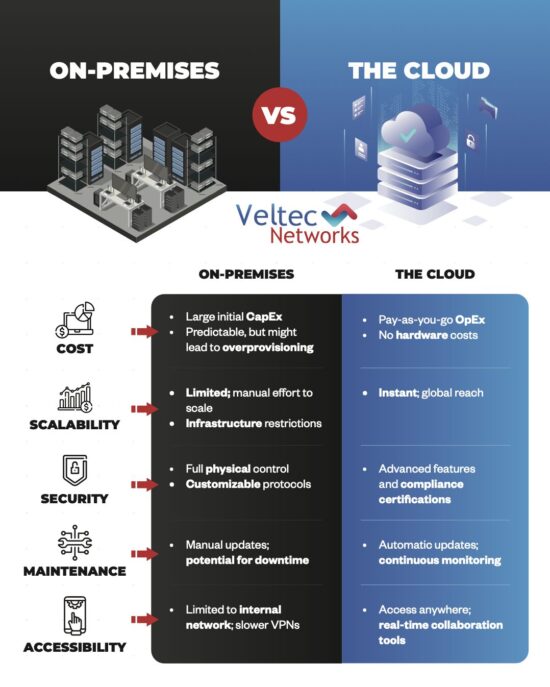What Are The 5 Critical Areas To Discuss With An External IT Person?
Making the transition from in-house IT person to a complete and external IT department is not something any CEO or business owner should take lightly. Without realizing it, you have come to depend on your long-time employee, their routine, and their method of approaching your IT system.
But, they are leaving the company after many years, and the thought of training another person could not equal the years of experience your current staff member will take when they retire. So now you are at the crossroads, and a little apprehensive about jumping over to an outsourced IT department?
There is no need to be anxious. To help you, as you start searching for the IT firm, which is the right fit for your business, we’ve provided a brief outline below you can use when interviewing potential IT companies.
#1 – 12 Probing Questions to Ask The External IT Person You Are Considering
As you start your interview, now is a good time, when you want to get to know a little bit more about the IT company. The two areas to focus on first, would be Business and Operations. In this area, we have divided it into two parts.
PART I – Business
When you begin a partnership with any IT firm the ideal place to start is with these six questions:
- What are your business hours?
- How long have you been in business?
- Who is your business insured through?
- What is your coverage limits and liabilities?
- What is your average customer retention rate?
- May I have five current references I can contact about your services?
PART II – Operation
Every company, in any industry, has necessary operational procedures. The IT industry is no exception.
- What is your response time?
- Does your company outsource Tech Support?
- Does your company outsource Help Desk Services?
- What is your process when an IT problem occurs after hours?
- Do you have experience in our particular industry?
- Are you familiar with the compliance regulations for our industry?
With these twelve questions asked and answered, this gives you a general idea about their business and operational practice.
#2 – How Will the Transition Effect My Business?
Moving away from only having an in-house IT person to outsourcing your entire IT Department, you and your staff will feel the effect in the beginning. Over time, the new process will set in and become second nature, but before that happens asking these questions gives you a heads up, for what’s to come.
- How long will the transition take?
- Are there different transition phases to expect?
- How will this impact our clients, business, and our staff?
- What types of downtime are we looking at during the transition?
#3 – What Goes On When You Are Not Looking?
There are four areas of Business IT happening most do not see or notice. Monitoring, Updates, Maintenance, and Troubleshooting. When no one else is looking, you should still be able to count on these four areas to function properly.
PART I –Monitoring
- What are you monitoring?
- Will our network be monitored?
- Will our website be monitored?
- Will our internet connection be monitored?
PART II – Updates and Maintenance
- Do you stay current with all the new technology advancements?
- When will we be notified about updates and outdated hardware?
- Are server updates performed during the day or at night?
- What types of proactive maintenance is done to minimize downtime?
PART III – Troubleshooting
- Will your company assist if our business has a power outage?
- Should the internet go down in our office, how will that affect our daily backups?
- If our system goes down, do you have redundant technologies in place to ensure backups?
- If so, what technologies are they, what do they do and is there a way you can demonstrate the process?
#4 – What Can You Tell Me About Your Contract, Pricing, and Service Level Agreements?
In this section, there are five crucial areas you will want to ask.
- Support Plans Offered
- Managed Service Tech Support contract
- Explain the Tech Support contract coverage
- Service Level Agreements (SLA)
- Options to end an SLA when the provider does not fulfill their obligation
You want detailed answers. For example, if you ask the IT person about their different support plans and they give you just a list of them; take it a step further. Have them break down each plan and explain in greater detail what the program covers. Same applies to the Tech Support and SLA contracts.
#5 – What Should You Ask When Shown The IT Support Contract?
During your interview, the IT company may show you a sample IT Support Contract they use. It is recommended you read it over carefully. We also recommend having your company attorney review any document that requires yours and any decision maker’s signature.
PART I – Account Manager and Support Ticket
- Will I have a dedicated account manager?
- What is the process to open a support ticket?
- How does your ticket escalation process work?
PART II – Onsite Personnel
- Who will be making our on-site visits?
- Will someone new be arriving each time?
- When the technician from your office arrives will they have picture ID?
PART III – Certification, Ongoing Training, and Contract End
- What is your company’s position regarding Technician Certifications?
- Does your company provide or leave it up to your employees for continual IT education?
- How do I end this contract if I am dissatisfied with your services?
In Conclusion – As you have read, there is a lot to consider and plenty of questions to ask. So, let us conclude this article with one last question. What would it cost your business, if you didn’t know what to ask and found the wrong IT Person instead?
Like this article? Check out, Tips to Keep IT Managers on Top of Their Work and Save Valuable Laptop Battery Life (Tips/Tricks) or Managed Services Return On Investment (Questions/Answers) to discover more.






